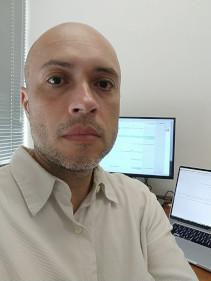
Graduado em Física pela Universidad de Costa Rica (Dez/2001). Mestrado (Mar/2004) e Doutorado (Out/2007) em Física pela Universidade Estadual de Campinas, no grupo MTA do Laboratório Nacional de Luz Síncrotron, com período-sanduíche na Technische Universitat Dortmund na Alemanha. Professor Doutor do Instituto de Física da USP desde Fev/2009 e Livre Docente no Departamento de Física dos Materiais do mesmo instituto desde Dez/2018. Possui experiência na área de Física da Matéria Condensada experimental, com ênfase em materiais quânticos, atuando principalmente em espectroscopia óptica com resolução temporal e transporte eletrônico. Tem atuado como pesquisador visitante em diversas instituições entre 2009 e 2024: McGill University (Montreal), GHMFL-CNRS (Grenoble), IBM Research (Zurich), TU (Dortmund), UMich (Michigan), Rice (Houston).
ODS:



